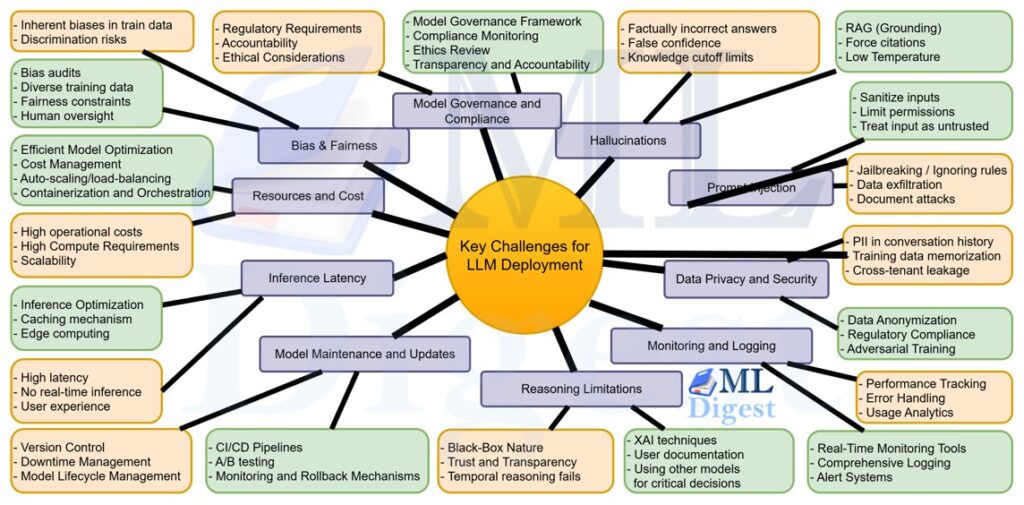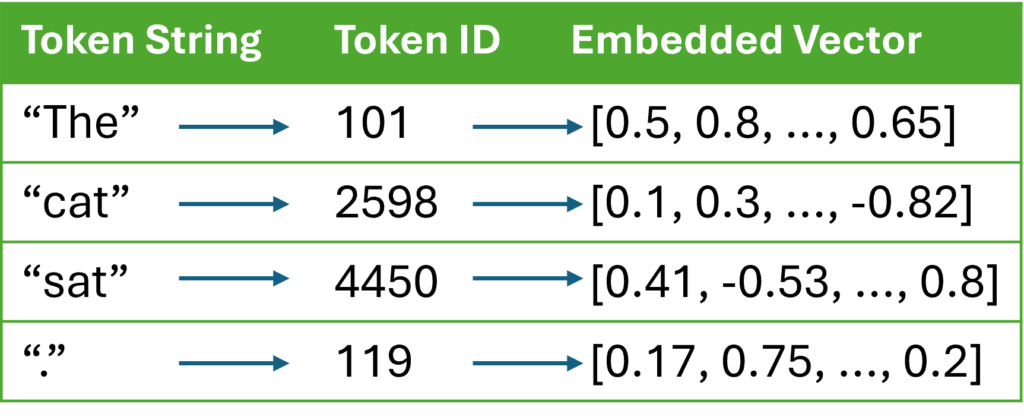Machine learning has broad applications that shape our everyday lives. We will discuss some of the most common applications.
1. Healthcare
Machine learning is revolutionizing the healthcare industry by improving diagnosis, treatment, and patient outcomes. Here are some key applications:
- Disease Diagnosis: ML algorithms can analyze medical images (like X-rays and MRIs) to help doctors identify diseases such as cancer at an early stage.
- Drug Discovery: Machine learning can predict how different drugs will work, speeding up the process of discovering new medications.
- Personalized Medicine: By analyzing patient history and treatment responses, ML can help predict which patients are likely to benefit from specific therapies.
See more healthcare applications
- Predictive Analytics: ML models can analyze patient data to predict the likelihood of disease progression or readmission, enabling proactive interventions.
- Patient Monitoring: Wearable devices and continuous monitoring systems leverage machine learning to track patient vitals in real-time and alert healthcare providers to any anomalies.
- Patient Documentation: NLP techniques are used to analyze unstructured data from clinical notes and electronic health records (EHRs) to extract relevant information and improve documentation accuracy.
- Operational Efficiency: Machine learning can optimize hospital resource allocation, patient scheduling, and supply chain management to improve overall operational efficiency.
- Telemedicine and Remote Care: ML algorithms analyze data from telehealth platforms to provide insights on patient engagement and outcomes, enabling remote patient monitoring and support.
- Mental Health Assessment: Machine learning tools can analyze speech patterns and social media interactions to monitor mental health and detect conditions such as depression or anxiety.
- Genomics and Bioinformatics: Machine learning is utilized to analyze genomic data, identifying mutations linked to diseases and aiding in genetic research and therapies.
- Population Health Management: Machine learning can identify health trends in populations, helping public health officials design targeted interventions for specific communities.
- Radiomics: Combining machine learning with radiographic imaging to extract high-dimensional data that can provide additional insights into tumor characteristics and treatment strategies.
- Health Chatbots: AI-driven chatbots use machine learning to provide initial medical advice or triage patients based on their symptoms, improving patient engagement and accessibility.
- Anomaly Detection: Machine learning models can detect unusual patterns in patient data that may indicate fraudulent claims or clinical errors.
- Clinical Trial Optimization: ML can assist in patient recruitment and endpoint prediction to make clinical trials more efficient and focused.
- Enhanced Surgical Outcomes: Machine learning can assist surgeons by providing data-driven insights on previous surgeries to improve techniques and reduce complications.
2. Finance
The financial sector utilizes machine learning to enhance security and optimize decision-making. Some major applications include:
- Fraud Detection: ML systems can recognize patterns in transactions to identify potentially fraudulent activity, helping banks prevent losses.
- Credit Scoring: Algorithms assess a person’s creditworthiness by analyzing past financial behavior, making loan approvals quicker and more accurate.
- Algorithmic Trading: Machine learning models analyze market data to identify trading opportunities, facilitating high-frequency trading strategies. It can analyze social media, news articles, and other text sources to evaluate market sentiment, providing insights into investor behavior and potential market movements.
- Risk Assessment and Management: ML algorithms can analyze vast datasets to identify potential risks associated with investments and loans, allowing financial institutions to make more informed risk management decisions.
See more applications
- Customer Service Automation: Chatbots and virtual assistants powered by natural language processing (NLP) can enhance customer interaction by answering inquiries, handling transactions, and providing personalized financial advice.
- Portfolio Management: Machine learning models can optimize asset allocation and rebalancing strategies, adjusting portfolios in real-time based on market conditions and individual investor goals.
- Regulatory Compliance: Machine learning can streamline the process of monitoring transactions and communications for compliance with financial regulations, helping firms avoid fines and legal issues.
- Personalized Financial Recommendations: ML can tailor financial products and services to individual customers based on behavioral data, enhancing customer engagement and satisfaction.
- Revenue Forecasting: Businesses can implement machine learning models to predict future revenues based on historical data patterns, seasonal trends, and other economic indicators.
- Liquidity Management: Financial institutions can use ML to optimize their liquidity positions by predicting cash flow needs and short-term financing requirements.
- Trade Surveillance: Machine learning can help monitor trading activity for suspicious behavior, ensuring compliance with regulations and preventing market manipulation.
3. Retail
Retail businesses leverage machine learning to enhance customer experiences and optimize operations. Key applications include:
- Recommendation Systems: Online stores use ML to suggest products to customers based on their previous purchases and browsing history. Examples include Amazon and Netflix recommendations.
- Inventory Management: Machine learning helps predict demand and optimize stock levels, reducing waste and ensuring that products are available when needed.
- Customer Segmentation: Businesses can analyze customer data to identify different groups and tailor marketing strategies to each segment.
- Dynamic Pricing: Retailers employ machine learning algorithms to adjust prices in real-time based on demand, competition, inventory levels, and other market factors to maximize profit margins.
See more applications
- Sentiment Analysis: Retailers can use machine learning to analyze customer reviews and feedback on social media to gauge customer sentiment and adjust strategies accordingly.
- Churn Prediction: By analyzing customer behavior, machine learning can predict which customers are likely to stop buying from a brand, allowing companies to take proactive measures to retain them.
- Personalized Marketing: Machine learning can help create targeted advertising campaigns by analyzing user data and preferences, making outreach more effective and relevant.
- Supply Chain Optimization: Machine learning assists in optimizing supply chain operations by predicting delays, optimizing delivery routes, and managing supplier relationships.
- Chatbots and Virtual Assistants: Machine learning powers customer service chatbots that can handle inquiries, provide product recommendations, and assist with order tracking, improving customer support.
- In-Store Experience Enhancement: Machine learning analyzes foot traffic patterns and shopping behaviors in-store to optimize product placement and improve store layouts.
- Sales Forecasting: Retailers can use machine learning models to predict future sales based on historical data, seasonal trends, and external factors, aiding in long-term business planning.
- Loyalty Program Optimization: Machine learning can enhance customer loyalty programs by identifying which rewards are most effective for different customer segments, leading to increased engagement.
- Augmented Reality (AR) Experiences: By analyzing user interactions with AR tools, retailers can enhance the virtual shopping experience and personalize suggestions based on preferences.
- Retail Robotics: Machine learning powers robotic applications in retailers for inventory checks, shelf scanning, and even customer assistance, enhancing operational efficiency.
4. Transportation
The transportation industry is significantly improved by machine learning technologies. Here are some important applications:
- Self-Driving Cars: Advanced ML algorithms enable vehicles to interpret road signals, classify objects, and navigate safely without human intervention.
- Traffic Management: Machine learning can analyze traffic patterns in real-time to optimize signal timing and reduce congestion in urban areas.
- Route Optimization: Delivery services use ML to find the most efficient routes, reducing travel time and fuel consumption.
- Predictive Maintenance: ML algorithms analyze data from vehicle sensors to predict when maintenance is needed, reducing the risk of breakdowns and improving reliability.
See more applications
- Demand Forecasting: Ride-sharing services and public transportation can use machine learning to predict passenger demand at different times and locations, helping to optimize service availability and reduce wait times.
- Personalized Recommendations: Navigation apps leverage machine learning to provide personalized route suggestions based on user preferences, historical driving behavior, and real-time conditions.
- Autonomous Drones: In logistics and delivery, machine learning helps drones navigate complex environments, avoiding obstacles and optimizing delivery routes.
- Smart Parking Solutions: Machine learning algorithms analyze parking space availability and guide drivers to the nearest available spot, improving traffic flow in congested areas.
- Intelligent Traffic Systems: Smart traffic lights and vehicle-to-infrastructure (V2I) communications utilize machine learning to enhance traffic flow and safety by dynamically adjusting signals based on real-time traffic data.
- Railway Operations Optimization: Machine learning can improve the scheduling of trains and the management of rail infrastructure, minimizing delays and enhancing asset utilization.
- Incident Detection: Using computer vision and sensor data, machine learning can help detect accidents and incidents on the road, allowing for quicker response times and potential prevention of secondary accidents.
- Carbon Emissions Reduction: Machine learning models can be utilized to analyze transportation patterns and develop strategies that reduce emissions, such as optimizing public transportation routes and schedules.
- Predictive Analytics for Supply Chain and Logistics: ML can forecast disruptions in the supply chain (like weather events or political instability) and suggest alternative transportation methods or routes.
- User Behavior Analytics: By analyzing users’ travel habits, machine learning can help transportation companies tailor services and marketing efforts to better suit commuter needs.
- Real-Time Public Transit Updates: Machine learning can analyze various data sources, like weather, traffic, and historical transit data, to provide commuters with real-time updates on delays and reroutings.
5. Agriculture
Machine learning is making strides in the agriculture sector, enhancing productivity and sustainability. Some notable applications include:
- Precision Farming: ML algorithms analyze soil data, weather patterns, and crop health to optimize planting and harvesting strategies.
- Pest Detection: By using image recognition, farmers can identify pests and diseases early, allowing for timely interventions.
- Yield Prediction: Machine learning models help forecast crop yields, enabling better resource management and planning.
- Irrigation Management: ML algorithms can determine optimal irrigation schedules by analyzing data from soil moisture sensors, weather forecasts, and plant needs, leading to more efficient water usage.
See more applications
- Automated Crop Monitoring: Drones equipped with ML technology can monitor crop health, identify areas of stress, and assess plant growth, providing farmers with real-time insights into their fields.
- Soil Health Assessment: Machine learning can analyze soil composition and health by processing data from sensors and laboratory tests, helping farmers make informed decisions about fertilizers and amendments.
- Crop Breeding: ML techniques are used to analyze genetic data and phenotypic traits, accelerating the development of crop varieties that are more resilient to climate change and pests.
- Supply Chain Optimization: Machine learning can predict demand and optimize logistics, ensuring that crops are delivered to markets efficiently while reducing waste.
- Weather Forecasting: Advanced machine learning models can analyze historical weather data to provide more accurate localized weather forecasts, helping farmers make better decisions.
- Livestock Management: ML algorithms can monitor animal health through wearable devices, predict diseases, and optimize feeding strategies to improve overall livestock productivity.
- Market Analysis: By analyzing historical market data, social media trends, and pricing patterns, machine learning can assist farmers in making informed decisions about when to sell their products for maximum profit.
- Resource Allocation: ML can analyze various factors such as crop type, land conditions, and input costs to optimize the allocation of resources like labor, fertilizers, and pesticides.
- Farm Financial Management: ML algorithms can analyze financial data to provide recommendations on investments, cost management, and risk assessment, helping farmers make healthier economic decisions.
6. Marketing
In the marketing field, machine learning allows businesses to understand their customers better and improve engagement. Some important applications are:
- Sentiment Analysis: ML techniques analyze social media and customer reviews to gauge public sentiment about products or brands.
- Ad Targeting: Companies use ML to deliver personalized advertisements to potential customers based on their online behavior and preferences.
- Content Creation: Machine learning algorithms can generate content, such as news articles or product descriptions, based on existing data.
See more applications
- Customer Segmentation: ML algorithms can analyze customer data to identify distinct segments based on purchasing behaviors, preferences, and demographics, enabling more targeted marketing strategies.
- Churn Prediction: By analyzing historical customer behavior, machine learning models can predict which customers are likely to stop using a product or service, allowing companies to take proactive retention measures.
- Recommendation Systems: Machine learning powers recommendation algorithms that suggest products or services to customers based on their past interactions and purchases, enhancing the customer experience and driving sales.
- Dynamic Pricing: Machine learning models analyze market conditions, competitor pricing, and consumer behavior to optimize pricing strategies in real-time, maximizing revenue and competitiveness.
- Marketing Automation: ML-driven tools can automate and optimize marketing campaigns by adjusting messaging, timing, and channels based on performance data and predictive models.
- Voice Search Optimization: As voice searches increase, machine learning can help businesses optimize their content for voice search queries, ensuring they remain competitive in voice-driven marketing.
- A/B Testing: Machine learning can enhance A/B testing by automatically determining the most effective variations of marketing materials and rapidly iterating through multiple tests to optimize performance.
- Influencer Marketing: ML helps identify the best influencers for brands by analyzing engagement rates, audience demographics, and alignment with brand values, enabling more effective influencer partnerships.
- Social Media Monitoring: Machine learning can monitor social media channels in real time to analyze trends, brand mentions, and competitor activities, allowing marketers to adapt strategies quickly.
- Email Marketing Optimization: Machine learning algorithms can personalize email content and delivery times based on user behavior, improving open and click-through rates.
- Heatmap Generation: Analyzing user interaction data allows ML to create heatmaps that show where users click or spend time on a website, helping marketers optimize website layout and content placement.
- Brand Health Monitoring: Machine learning can continuously assess brand perception over time by analyzing various data sources, providing insights into the effectiveness of marketing strategies and campaigns.
7. Entertainment
Machine learning plays a significant role in how we consume entertainment today. Here are several applications:
- Content Recommendations: Streaming services like Spotify and Netflix use algorithms to recommend music and movies based on your preferences.
- Game Development: In video games, ML is used to create more realistic and adaptive behavior in non-player characters (NPCs).
- Audience Analysis: By analyzing viewership data, content creators can understand what audiences like, leading to better content production.
See more applications
- Personalized Marketing: Entertainment companies utilize machine learning to tailor marketing campaigns based on individual user data, thus increasing engagement and conversion rates.
- Script and Plot Analysis: Machine learning algorithms can analyze scripts to predict the potential success of a movie or show based on various factors, including genre, characters, and themes.
- Music Composition: AI-powered tools can assist composers in generating new music patterns and styles, leading to innovative and unique soundtracks.
- Audience Sentiment Analysis: By analyzing social media and reviews, machine learning can gauge audience reactions to films, performances, or shows, helping companies to refine their offerings.
- Virtual Reality (VR) Experiences: Machine learning enhances VR environments by adapting scenarios to the user’s actions, making experiences more immersive and personalized.
- Audio and Visual Enhancement: Tools like Adobe Sensei use machine learning to improve video editing, color correction, and audio mixing, streamlining the post-production process.
- Content Creation: AI can assist in generating scripts for shows and movies or even produce entire episodes autonomously, providing a new avenue for storytellers.
- Piracy Detection: Machine learning is employed to track unauthorized distribution of content and protect intellectual property through pattern recognition and anomaly detection.
- Fan Engagement: Chatbots powered by machine learning enhance fan interactions by providing immediate responses to queries about shows, releases, and events.
- Interactive Storytelling: Machine learning enables the development of interactive narratives in video games and digital content, allowing users to influence the storyline based on their choices.
Machine learning is rapidly changing various industries and making our lives more convenient and efficient. Its applications are extensive, from healthcare and finance to marketing and entertainment. As you explore the world of machine learning, remember that its potential is still largely untapped, and new innovations continue to emerge every day. Understanding these applications can provide valuable insights into how this technology is shaping the future of our society.






